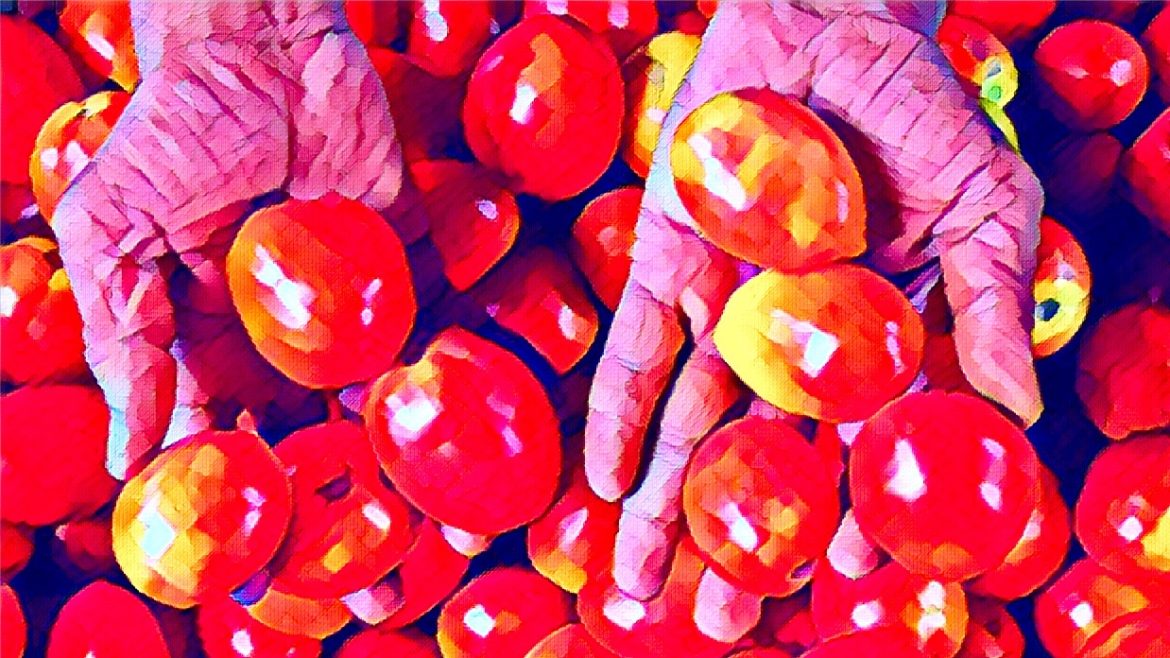Tomato prices in Nigeria remain high due to seasonal factors and inflation, according to Mira Mehta, co-founder, and CEO of Tomato Jos. In a series of social media posts, Mehta explained that the current high cost of tomatoes is typical for this time of year.
“Tomatoes are seasonal,” Mehta emphasized. “They need cool nights, hot days, and a dry climate. In Nigeria, the rainy season makes it hard to grow open-field tomatoes.”
This seasonal pattern causes tomato prices to rise every June. Five tomatoes now cost up to ₦1,000, and red pepper prices have also increased significantly. This price hike has led many Nigerians to seek alternatives for their meals, often cooking without tomatoes.
Mehta further highlighted transportation costs as a major factor. “Seasonality is such a big deal that we only run fresh fruit through our factory for about 70 days a year. During that time, we process some fruit directly into sachets and store the rest as a paste for future use.”
She noted that every year, tomato associations blame the pest tuta absoluta for lower yields, but she believes this is an attempt to secure government handouts. “Tuta can be controlled easily with chemicals available in Nigeria. We haven’t had tuta issues since 2016.”
Beyond seasonality, Mehta pointed to broader economic issues affecting tomato prices. Inflation has driven up the costs of inputs like fertilizer, leading fewer farmers to plant dry-season crops. “Fertilizer has become stupid expensive lately,” Mehta said, suggesting this has led to smaller plots and reduced overall production.
The rising costs of production are not limited to tomatoes. “Every input that goes into production has seen price increases, affecting the capacity of farmers and making loans less attractive,” Mehta added. This situation has likely reduced food production across most crops, although data collection in Nigeria is lacking.
Climate-related factors also contributed to poor yields this year. “We saw the hottest temperatures ever in Kaduna in December. The harmattan arrived late and wasn’t as cold as usual,” Mehta explained. These conditions stressed the plants, resulting in lower yields.
Contrary to Mehta’s view, Shehu Jubrin, chairman of market traders in Mile 12, Lagos, attributed the high prices to security issues. “The real fact is insecurity. Farmers negotiate with and pay bandits to access their farms,” Jubrin said. This situation has kept many farmers in internally displaced persons (IDP) camps, severely impacting food production.
“Ninety-nine percent of the people in IDP camps are farmers,” Jubrin added. “They don’t know anything apart from farming. As long as these people remain in camps, the country will face trouble with food supplies.”
Despite the challenges, Mehta expects tomato prices to decrease slightly towards August. “By the end of summer, fresh tomatoes from Kwara State will start appearing in Lagos markets,” she predicted. However, the impact of inflation on food prices is likely to be long-lasting.
As the debate over the causes of high tomato prices continues, it is clear that a combination of seasonal factors, economic challenges, and security issues is driving the current situation. Both experts highlight the need for better data collection and support for farmers to address these persistent problems.
In conclusion, tomato prices in Nigeria remain high due to seasonal factors, inflation, and security issues. While some relief may come in August, the underlying issues will require concerted efforts to resolve. As the rainy season continues, consumers and farmers alike will be watching closely to see how the situation evolves.
Source: The Guardian


